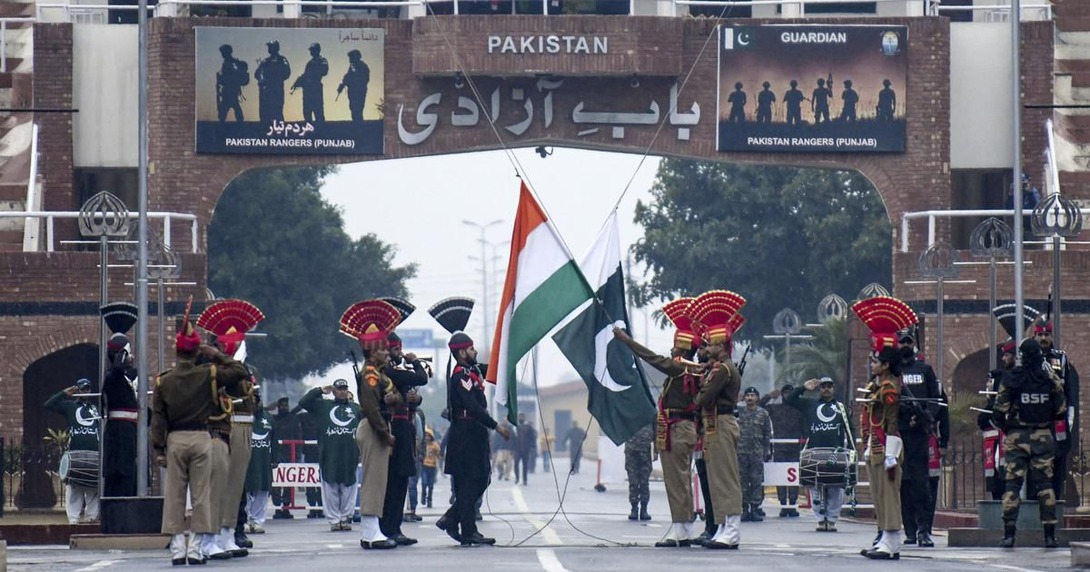This article is part of a series titled “Is there a way forward for Pakistan?” Read more about the series here.
In his 11th August 1947 address to the Constituent Assembly of Pakistan, our founding father Muhammad Ali Jinnah talked about the curses of bribery and corruption. He also talked about the “great evil” — the evil of nepotism and corrupt employment practices that can weaken any country’s foundation. He also pointed out the biggest obstacle to India’s freedom and the lesson to be learned from the fact that Great Britain was not only able to conquer India, but also hold 400 million souls subjugated for such a long time.
Nearly 76 years later, here we stand, a nation divided and on a pathway toward economic, political, and social ruin. Trust, which is conceptualised as the currency of the realm, has vanished as our elites occupying the various institutions and seats of power focus on a mutually destructive path with the country and her interests turned into a painful casualty of deep and resentful hostility.
Sustained and consistent weakness in policy-making across decades (both external and internal), systematic weakening of the concept of national interest, and constant tension amongst institutions and political elites mean that results of this top-to-bottom deterioration are now here for all to lament.
Let’s analyse what could have been and where this current path is leading towards. Using IMF’s world economic database, which covers data since 1980, one can glean the contours of the divergent paths of Pakistan, India, and Bangladesh over the last 42 years. In 1980, according to IMF data, the GDP per capita in PPP terms (an estimate of economic output per person) tells a story of different starting points with Pakistan’s per capita income being 84% and 34% higher than India and Bangladesh respectively. Fast forward to 2022, the same comparison stands at 20% and 15% below India and Bangladesh respectively.
The lagging trend, which Pakistan has experienced since 1980, shows what lies ahead; For instance, if the current country-specific trends were to continue and Bangladesh and India’s per capita growth were to slow to 7% per annum from the current double-digit pace, Pakistan’s GDP per capita in PPP terms will only reach $16,200 (using 2017 prices) whilst India and Bangladesh would be both at $45,000 and above by 2050, leading to a future of these three countries which would look tangibly and deeply different from each other when it comes to the level of economic and social development and progress.
These statistics and their projections highlight the sustained decline in both the quality and quantity of economic outcomes which have occurred over the last 42 years for Pakistan (and more clearly since the 90s) and in all probability will lead to very different end-points for the various countries.
However, challenges of the 21st century mean that these trajectories of the last four decades can’t even be taken lightly by any of the above countries including Pakistan. According to Burke, Hsiang, and Miguel’s (2015) climate change damage function approach, the whole of the sub-continent is mapped to include some of the most vulnerable countries to the challenge of human-driven global warming. Indeed, all three countries in the absence of meaningful mitigation and adaptation face total economic collapse, if temperatures were to continue to rise 3C and above compared to preindustrial levels.
As a country, our state and our people have systematically underplayed the importance of sound economic policy and its interaction with geopolitics and broader national security. Our record of constant dependence on the IMF for support is a testament to this failed thinking and application (which is factually worse than most other emerging markets).
I am often asked like many members of Pakistan’s diaspora about coming back and changing the country. This question in itself shows our collective thinking and requires self-reflection. Countries are not built and changed by individuals. They change and progress through collective will and the application of national character. Here individuals can certainly lead by example as our forefathers did in their fight for an independent country at the start of the 20th century but they are only facilitators not the cause of the change.
We shouldn’t forget that India and Bangladesh that started the post-independence journey in 1947 along with Pakistan are now breaking free and taking a giant leap, but Pakistan is deteriorating fast into social and economic mayhem.
We shouldn’t forget that two countries (India and Bangladesh), which started the post-independence journey in 1947 (with Bangladesh starting again in 1971) are now breaking free and taking a giant leap, when it comes to creating sustained and meaningful economic prosperity for their people. Whilst we as a nation are not only lagging but deteriorating fast into social and economic mayhem, whilst losing our sense of self and pride along the way.
The rot can be stopped and reversed and countries have woken up from the crisis before to carry out fundamental changes to their approach and implementation (e.g. Asian countries after the 1997 crisis or India after the early 90s balance of payment crisis or Europe after WW2). However, such a turnaround requires acknowledgement of failures, incompetence, and above all, the national will to tackle the challenges and break free from all the forces which are holding us back.
Right now, the painful reality is that we have lost our core and now run the danger of losing Jinnah’s dream of a prosperous Pakistan, permanently for us and our future generations.
The writer is a Pakistani poet and activist based in Canada.

